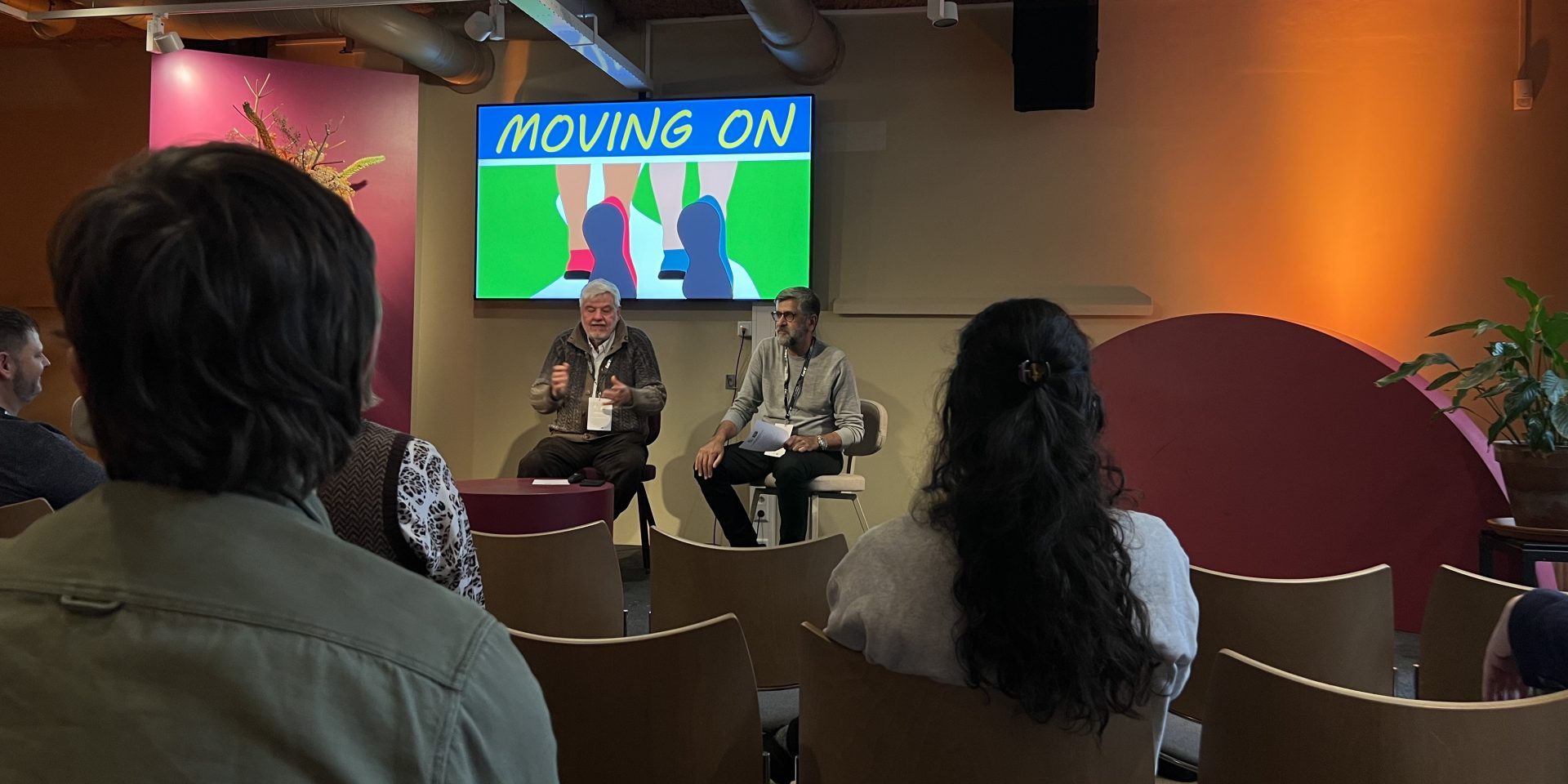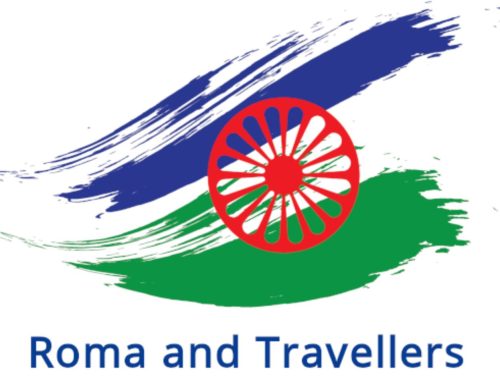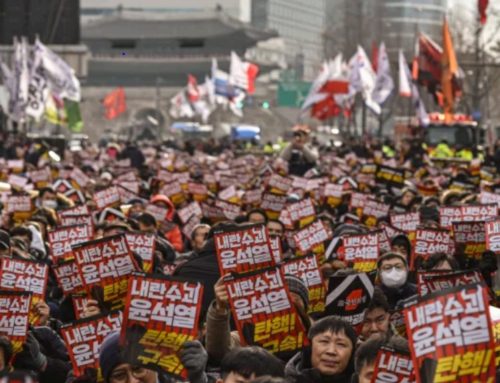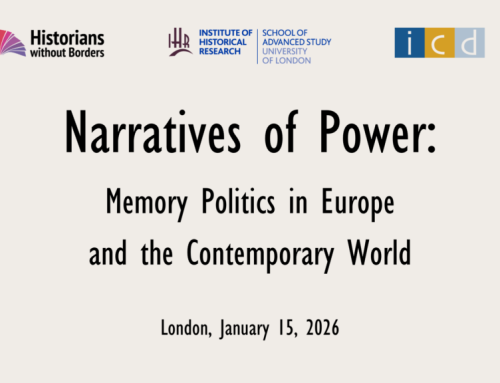Photo: Galina Shatilova
Held at the Reinwardt Academy Amsterdam, in collaboration with Fare Network in the context of the Football Makes History 2 project, the roundtable discussion, Uniting Histories: The Inclusion of Roma, Sinti, and Traveller Communities In and Through Sport, served as a continuation of previous dialogues focused on the integration of marginalised communities through sports. Building upon the discussions of an earlier roundtable held in Bucharest in 2018, this session reflected on the role of sport in fostering social, cultural, and economic integration for Roma, Sinti, and Traveller communities. Despite some progress, we note that many of the challenges faced by these communities, such as limited access to education and social exclusion, remain largely unchanged.
The primary aim of the session was to revisit the issues surrounding the involvement of these communities in sport, particularly in light of the Moving On project, which has produced a comprehensive report on Roma, Sinti and Traveller communities’ participation in sport. This discussion sought to identify and push forward the critical issues that hinder integration, with a focus on educational opportunities, social cohesion, and economic mobility, and explore the potential role of sport as a tool for cultural integration. It reflects on the historical and ongoing struggles of these communities, some of whom suffered greatly during the Holocaust, and notes that although these populations share many cultural traits with the majority population of the nation-states they inhabit, they continue to face discrimination.
The role of sport is highlighted as a potential tool for addressing these challenges, providing a means of education, socialisation, and community engagement, which could help bridge the gap between marginalised groups and the broader society. There is a need to better understand these communities across Europe.
Discrimination and Systemic Barriers
Participants unanimously highlighted the pervasive discrimination faced by Roma, Sinti and Traveller communities, which manifests itself across multiple societal domains, including education, employment, healthcare, and social integration. A participant from Ireland recounted his own experiences of prejudice, from teachers who overlooked him to law enforcement harassment. He described how these challenges compelled him to hide his Traveller identity for much of his life.
Mistrust and the Challenge of Engagement
A recurring theme was the erosion of trust within Roma, Sinti and Traveller communities, a consequence of generations of marginalisation. Participants noted that when organisations approach Travellers with offers of support, these initiatives are often met with skepticism. Building trust requires time, patience, and a genuine commitment to collaboration, as both communities and external organisations must work to overcome entrenched prejudices and misgivings.
This mistrust also extends to the preservation and sharing of histories. Participants noted the lack of written documentation of their communities’ experiences, leaving oral histories as the primary means of preserving their narratives. However, many feel that their stories are undervalued or dismissed by outsiders, further perpetuating their invisibility.
Invisibility and the Need for Representation
The absence of Roma, Sinti and Traveller narratives in mainstream history and media was identified as a critical issue. Participants emphasised that this invisibility not only marginalises identities but also erases contributions and struggles for public consciousness.
A participant from the Netherlands recounted her family’s lost history during the Second World War, where Roma and Sinti communities were sent to concentration camps, yet no formal record of these experiences exists. A participant from London emphasised that communities must take ownership of their narratives, rejecting the notion that academics or historians can authentically tell their stories. The principle of “nothing about us, without us” emerged as a guiding ethos for reclaiming and preserving Traveller histories.
Sports as a Tool for Inclusion and Empowerment
Across the discussions, sports were repeatedly highlighted as a powerful mechanism for breaking down barriers and fostering inclusion. Participants described how sports served as a lifeline during their youth, offering a sense of purpose and belonging. However, Roma, Sinti, and Traveller Communities face tremendous challenges in accessing certain sports, from exclusionary practices in clubs to reluctance among professionals to engage with Traveller-led initiatives.
Despite these obstacles, grassroots efforts have made significant strides. In Ireland, Traveller-led teams such as local soccer clubs have created spaces for community engagement. A National Play Day near a Traveller halting site drew over 200 participants, demonstrating the potential of sports to build bridges and foster social cohesion.
Similarly, a participant from the Netherlands recounted how joining a tennis club at age 11 introduced her to new social and cultural opportunities, including aspirations for higher education. These experiences underscored the transformative power of sports as a gateway to broader horizons and personal growth.
Grassroots Activism and Community-Led Change
The discussions underscored the importance of grassroots activism in driving change. The participant from London highlighted how Traveller communities there, like other marginalised groups, have taken it upon themselves to preserve their heritage and advocate for their rights. She emphasised that meaningful change rarely comes from top-down initiatives; instead, it begins with the efforts of the communities themselves.This activism demands emotional labor and sustained commitment. In London, settled Traveller communities have shown the power of collective action through storytelling, cultural preservation, and advocacy. While systemic change remains slow, grassroots efforts drive progress, challenging inequalities and amplifying Traveller voices.
The discussions revealed the multifaceted challenges faced by Roma, Sinti and Traveller communities across Europe, from entrenched discrimination and erasure to the emotional labor required to preserve their histories and advocate for their rights. Sports and grassroots activism emerged as recurring themes, highlighting their potential to foster inclusion, empower individuals, and build solidarity.
Achieving lasting change requires more than isolated initiatives. It demands a concerted effort to address systemic inequalities, foster trust, and amplify the voices of Roma, Sinti and Traveller communities. Reclaiming their narratives and advocating for their rights, these communities are paving the way for a future of greater recognition, respect, and inclusion.
The event at the Reinwardt Academy in Amsterdam was organised by Fare Network and Reinwardt Academie with the support of the European Union’s Erasmus+ programme. The full event was titled Uniting Histories: Football Heritage and Dialogue for Social Inclusion













